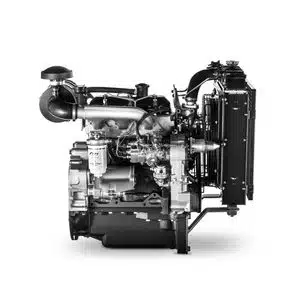Increasing popularity of turbo engines: reasons and tips for their proper maintenance

Turbo engines have gained notable popularity in the automotive industry, not only for their ability to increase engine power but also because they offer a more efficient solution in terms of fuel consumption and reduction of pollutant emissions. This article explores the reasons for this growing popularity and offers practical tips for the proper maintenance of such engines, thereby ensuring their optimal performance over the long term.
Reasons for the popularity of turbo engines
Turbo engines have significantly spread across various car models and brands. This trend can primarily be attributed to environmental and economic needs. Manufacturers are looking to comply with emission regulations while producing vehicles with better performance and efficiency.
The turbo system allows internal combustion engines to be more efficient. Turbo technology injects compressed air into the combustion chamber, increasing the amount of oxygen available to burn more fuel and generate more power, which translates into fewer emissions of harmful gases.
Additionally, due to their smaller displacement, these engines are lighter and consume less fuel, characteristics that make them more attractive in a market where fuel economy is crucial. Consequently, smaller turbo engines have emerged that equal or even surpass the efficiency of hybrid engines.
For those seeking more affordable and efficient vehicles, four-cylinder car options that represent an excellent investment may also be viable alternatives.
Challenges of electromobility and the return of gasoline engines
The transition to electromobility, driven by international agreements, promised a significant reduction in carbon emissions by 2050. However, the high costs of electric cars and the decrease in government subsidies have slowed the mass adoption of these vehicles.
Therefore, many companies have reconsidered gasoline engines as a viable option to maintain economic balance. However, to stay compliant with emission regulations, the use of turbos is seen as a solution to make these engines more efficient and less polluting.
Tips for proper maintenance of turbo engines
For a turbo engine to operate correctly and reach its maximum potential, it is essential to follow certain maintenance tips. Although the turbo itself does not require frequent specific maintenance, comprehensive care of the engine is key to prolonging its lifespan.
Proper lubrication
Engine oil is fundamental for the proper functioning of the turbo. Oil specifically designed for turbocharged engines helps prevent lubrication issues and minimizes the risk of damage.
Beware of overheating
To prevent the turbo from suffering damage due to excessive heat, it is advisable not to turn off the engine immediately after intensive use. Allowing the engine to idle for a few minutes helps the turbo to cool down adequately.
Contaminant control
Preventing foreign particles from entering the system is critical. Using quality fuels and properly filtering the air can reduce the risk of internal damage to the turbo.
Prevention of carbonization
Keeping the combustion system operating optimally is vital to prevent excessive carbonization inside the turbo, which could result from poor combustion or failures in any internal materials.
Proper usage of the engine from the moment of ignition, such as letting it rest after intensive acceleration, can be an effective strategy to prolong its functionality. Additionally, it is important to follow the manufacturer’s guidelines regarding oil use and service interval changes.
Exploring vehicles with the latest technological advancements may involve adding engines like that of the Mercedes A250e, which combines innovation and efficiency.
The growing popularity of turbo engines
Turbo engines have gained significant ground in the automotive industry, becoming the preferred choice for a wide range of vehicles. This popularity is largely due to their benefits in terms of performance and efficiency. The use of a turbo allows to maximize power without the need to increase engine size, resulting in more efficient fuel consumption. In a context where environmental regulations are becoming increasingly strict, this feature stands out as a viable solution for both manufacturers and users.
An additional boost for the adoption of turbos is their ability to reduce pollutant emissions. By improving combustion efficiency through injected compressed air, turbo engines not only offer better performance but also help mitigate environmental impact. This combination of energy efficiency and emission reduction has made turbo engines an attractive alternative in the fight for sustainability in the automotive sector.
However, to enjoy the benefits of these engines and prolong their lifespan, proper maintenance is crucial. Although turbos do not require exhaustive maintenance per se, taking care of the engine at a general level is indispensable. Factors such as using quality oil, avoiding turning off the engine immediately after intense use, and ensuring proper lubrication and cooling are essential practices to keep the turbo in optimal condition.
Finally, recognizing the signs of wear, such as loss of power or unusual noises, and acting before problems escalate can prevent costly repairs. With these precautions, turbo engines can continue to provide an ideal balance between power, efficiency, and sustainability, solidifying their place in the future of the automotive industry.





